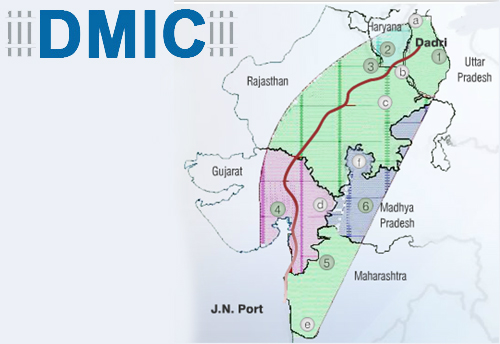Planners earlier criticized urbanization but ultimately realized that cities are engines of growth: DMIC CEO
Updated: Feb 17, 2016 07:26:09am

Mumbai, Feb 17 (KNN) Planners earlier criticized urbanization as a western phenomenon, they ultimately realized that cities are the engines of growth, said Alkesh Kumar Sharma, CEO and MD, Delhi Mumbai Industrial Corridor Development Corporation Limited (DMICDC).
He said this at a seminar on ‘Industrial Corridors: Drivers for India’s Economic Growth’, jointly organized by FICCI and DMICDC.
Sharma made a theme presentation on ‘Role of Industrial Corridors in Building a New India’.
“India would double its urbanization in the next two decades, with 700 million people moving into cities. Cities will create 75 per cent of India’s growth. That is the growth story India has to look at,” he said.
He disclosed that as India celebrates its 70th Independence Day in August 2016, other historic events will take place side by side. “Greenfield industrial cities will be ready to welcome their first investors.”
Describing the various industrial corridors across the country, he said that they have been planned by “Some of the best master consultants in the world.”
Describing the Delhi Mumbai Industrial Corridor (DMIC), Amitabh Kant, DIPP Secretary, said it is benchmarked with the world’s best, with top class planning and detailed engineering.
Explaining the merits of the DMIC, he said, “Today, it takes 14 days for goods to reach the ports in west India from the north. The corridor will be ready in 2018, and goods will reach the ports in 14 hours.”
He added that similar corridors linking Amritsar-Kolkata, Chennai-Bengaluru, Chennai-Vizag and Mumbai-Bengaluru will sharply lower logistical costs. All these smart cities of the future will be replete with planned engineering, trunk infrastructure, and recycling of water and waste. They will function with about 12 layers of infrastructure below the ground.
“For the first time in the world, geography and ICT planning will be converged and integrated,” he added.
Didar Singh, Secretary General, FICCI said that the key factors are land, labour and capital.
“Are we able to access these easily in the Indian environment?”
He added that DMIC and the other industrial corridors will provide an enabling environment for business and economic growth. “This is an excellent idea for India, and we are extremely happy as FICCI to be associated.”
Anthony J C DeSa, Chief Secretary, Government of Madhya Pradesh, said, “The challenge is to exploit the natural tendency of industries to grow along corridors and mould them as engines of growth.”
Madhya Pradesh will be developing three major industrial corridors and five smart cities. The major one is the Bhopal-Indore corridor, which is included within the DMIC. The two cities are akin to Mumbai and Pune and well connected by expressway. Another corridor will be Jabalpur-Singrauli. (KNN Bureau)












